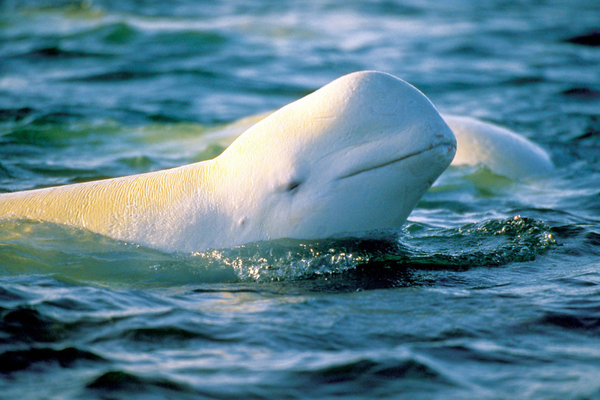In Cook Inlet’s quieter bays, lucky onlookers occasionally spot a small squadron of white crests break the surface, their breath forming plumes of steam in the air. If your boat engine is off, sometimes you can even hear their songs through the hull—a multifaceted collection of whistles, clicks, moos and chirps so complex that they’ve earned belugas the name ‘the canaries of the sea.’ Once so numerous that their surfacing pods were compared to miles of whitecaps, Cook Inlet belugas have plummeted from a population of 1,300 in 1979 (the first year their numbers were recorded) to roughly 289 today, according to NOAA surveys. Despite their diminished numbers, these whales remain a cultural touchstone for Cook Inlet. But in recent months a new threat has emerged for Cook Inlet Belugas: the proposed Johnson Tract Mine.
Listed as endangered under the Endangered Species Act in 2008, Cook Inlet Belugas’ numbers have not rebounded. Instead, they face a death by a thousand cuts, from pollution, habitat destruction, and especially noise. Belugas rely on sound to navigate, hunt, and communicate. Underwater construction and boat traffic can disorient them, leaving them lost in their own waters.
One of the greatest recent threats to Cook Inlet Belugas is the proposed Johnson Tract Mine. This mine, planned to delve into a mineral-rich area at the base of Mt. Iliamna, is located within the boundaries of Lake Clark National Park—specifically on a 20,942-acre private inholding owned by Cook Inlet Region, Inc. (CIRI). The mine would carve a 20-mile industrial access road into the park and a new deep sea port in Tuxedni Bay. But this stretch of coast is anything but empty—it is the only known winter foraging ground for Cook Inlet belugas. Each year, the whales return here to feed and take shelter during the winter months.
An industrial port, designed to haul heavy machinery and up to 80 ore shipments a day, would bring noise, construction, and heavy machinery into Cook Inlet belugas’ critical habitat. For a population already on the brink, it could be the final blow.
What can you do about it?
Inletkeeper and our allies are watching and raising the alarm, but we need your help. Inletkeeper has filed a petition to NOAA to protect Tuxedni Bay, which would give Cook Inlet Belugas a chance to recover.
Add your voice today: Sign Inletkeeper’s petition to protect Tuxedni Bay, safeguard Cook Inlet belugas, and defend the rich biodiversity of our Inlet.

